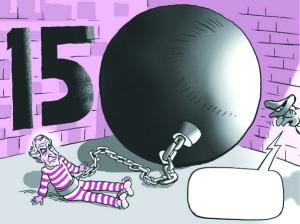流行病

句子:讲排场,摆阔气,是这个地区的流行病。
误译:Waste and extravagance is an epidemic disease in this area.
正译:Waste and extravagance is an evil social practice in this area.
解释:epidemic disease 的意思是a large number of cases of a particular disease happening at the same time in a particular community,指的是“人与人之间的传染病”,不是“社会弊病”。
“流行病”的第一个意思是“能在较短时间内广泛蔓延的传染病”。英语可以译为pandemic, epidemic, epidemic disease。
例如:
1. 这位世界卫生组织专家指出这场流行性感冒仍然对世界健康状况构成长久的威胁。The WHO expert points out that the pandemic flu remains a constant threat to the health status of the world.
“流行病”的第二个意思是比喻“广泛流传的社会弊病”。英语可以译为bad social practice, evil social practice, social malpractice, social ill。例如:
2. 传播名人八卦新闻已经成为一种网络盛行的流行病。Spreading celebrity gossip news has become a social malpractice prevailing on the Internet.
“流行”的第一个意思是“广泛流传”。英语可以译为prevalent。例如:
3. 这个流行一时的说法已经过时了。This once prevalent way of saying has become out of mode.
“流行”的第二个意思是“时尚而盛行”。英语可以译为fashionable, in fashion, in vogue。例如:
4. 牛仔裤在青年和中年人中间依然十分流行。Jeans are still in fashion among the young people and middle-aged adults.
“流行歌曲”,可以译为 popular song, pop song。例如:
5. 这个老人在年轻时就开始喜欢流行歌曲。The old man began to love popular songs when he was young.
“流行色”,可以译为 fashion colour, trend colour, trendy colour。例如:
6. 绿色是今年夏季的服装流行色。Green is the fashion colour in clothing for this summer. ▲
(本栏目供稿:王逢鑫教授)

